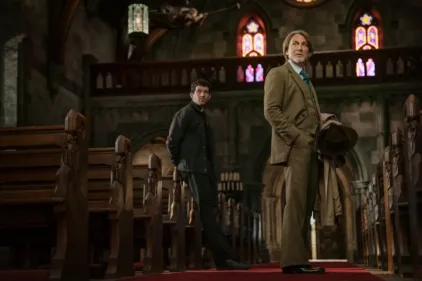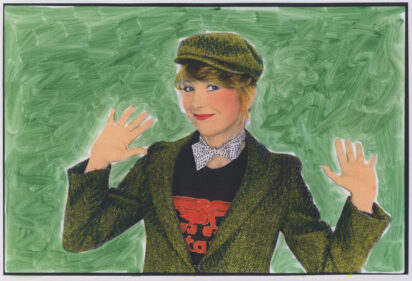It’s not always easy, in the cutthroat world of Hollywood competition, to stick by your guns, direct only movies you believe in and remain personally
admirable. Martin Ritt has succeeded at all three, and perhaps that helps to account for the certain calm that you sense in him. His work has been substantial.
He’s visiting Chicago to talk about his new film, “Norma Rae,” which is the story of a feisty young woman who becomes a key union volunteer in an effort to organize a Southern textile mill. He walks around his hotel suite, wearing one of the one-piece jumpsuits he’s famous for. And he shakes his head in wonderment that he’d made another film about labor unions.
“I never wanted to make a film about unions again after the demise of ‘The Molly Maguires’ [1969], a film that I loved. They say people won’t buy films about unions. The box office failure of ‘FIST’ last year also seemed to indicate that. But then I read about this woman who worked in a mill and got involved in an organizing effort, and I thought, what a classy broad this is!
“It’s as simple as that: I wanted to tell her story. And ‘Norma Rae’ is essentially more her story than a so-called union picture. She’s a working girl, 31, slightly round-heeled, ripe for change in her life if only she could see the way to change it. The union organizer from New York turns up and suggests some changes. There was some pressure to rewrite the script to allow her to have a love affair with the organizer, but no – that wouldn’t have been right. She gets involved because of her character, not because of her sex life.”
The box-office returns still aren’t in on “Norma Rae,” Ritt said, but he’s long since given up on guessing what will sell at the box office: “I made a picture with Walter Matthau called ‘Casey’s Shadow’ that I was sure would be a big bit. It was about two things that I love, race horses and Matthau…and it got lost. The reviews approached it as a ‘family picture,’ which makes everyone shy away.
“On the other hand, when I was making ‘Sounder,’ I told my wife: Great! I’m making a picture with no sex, no violence, no big stars and the smallest budget I’ve had in years. So what happens? Dollar for dollar, ‘Sounder’ was the biggest hit I’ve had.”
Ritt has had some other big hits, too, including “Hud,” “Hombre,” “The Spy Who Came in from the Cold,” and “Pete ‘n’ Tillie.” But he says he doesn’t expect his films to go through the ceiling, like “Star Wars,” because the subjects he’s interested in aren’t usually mass-market stuff. He’s more interested in exploring characters who find themselves confronting an important crossroads in their lives and trying to find the right decision.
The Norma Rae character is like that, and especially as she’s portrayed by Sally Field. Her performance has received one of the best sets of reviews this year, and she may be a possibility for a 1980 Academy Award nomination. Yet when Ritt originally suggested Field for “Norma Rae,” he says, the studio had its doubts. “They resisted her at first. They didn’t want to take a chance with a girl who’d been around and not made it. She’d never really had a chance at a role like ‘Norma Rae.’ But I guessed she’d be good. A guess was actually what it was…I had a feeling. The moment I met her, I had the feeling she was exactly the admirable lady I was looking for. I knew after the first week of shooting that she’d be terrific, and so did the studio. And this movie will change her life.”
Ritt shot the movie on location in Alabama, in a union mill. And he came back, he said, still depressed over the limited opportunities for people in mill
towns. “Kids can’t wait to get out of high school, or drop out, because they’re not learning anything meaningful. And then they go to work in the mills, and they’re old at 30, all used up. What do they do for entertainment? Sex and getting drunk. And how do you get out of a situation like that? What if you can’t throw a football, or you’re not 6-8 and a basketball star? How do you beat the rap?”
What he likes best about his movie, he said, was the way the union organizer (Ron Liebman) acts as a catalyst for Norma Rae, and the way she then
communicates her feelings to the mill workers. “These people aren’t dumb, but they’re worn down by the working conditions, they’re strung along by the paycheck, they’re misinformed…just plain information can change their minds.”
The movie has been invited to the Cannes Film Festival, he said, and he thinks Sally Field might have a chance at the award for best actress.
“I’m going, too,” he said, smiling. “That takes some planning. I’m having a tuxedo made. Ninety-nine per cent of the time I wear a jump suit. If it’s comfortable and suits your needs, why not? But on the night they show my film at Cannes, I’m not gonna wear a gym suit. And then, after that, what’s next? Probably another movie or two or three or four.”











